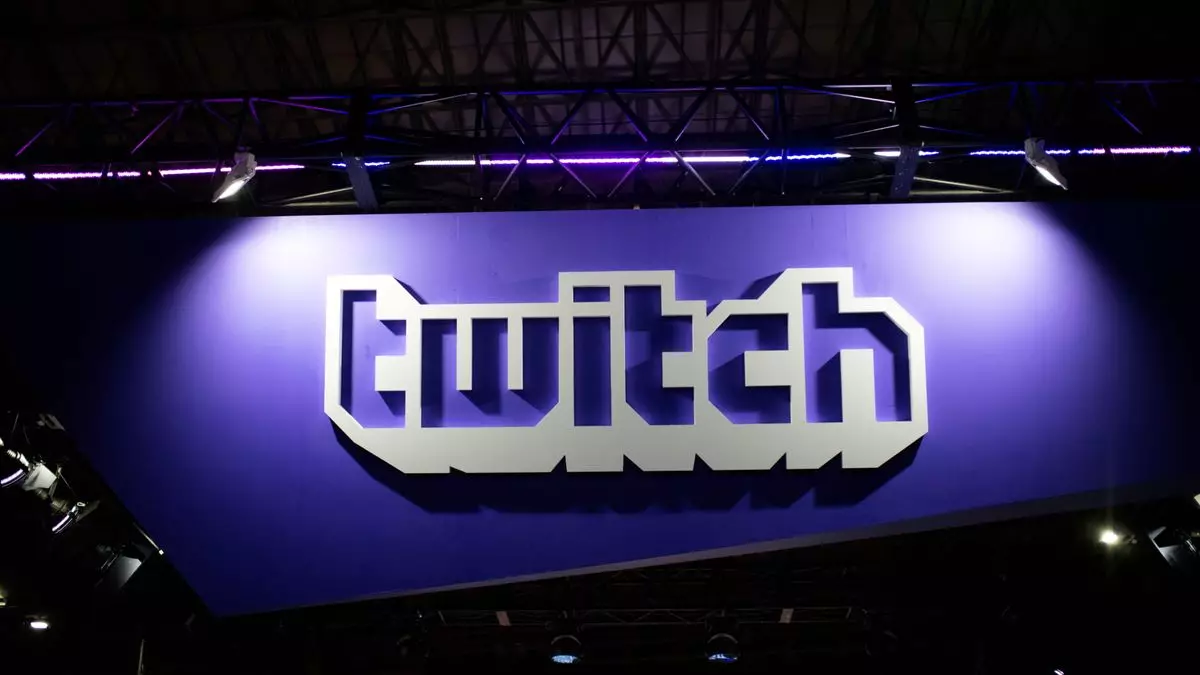In an effort to refine its content classification guidelines, Twitch has recently introduced a new category aimed at addressing “politics and sensitive social issues.” This shift comes amidst growing concerns about the platform’s role in facilitating discussions on contentious topics. The incorporation of this new category aims to ensure that streams covering sensitive subjects—such as elections, civil rights, military conflicts, and other pivotal social issues—are clearly labeled. The intent is to enable viewers, particularly younger audiences, to navigate content that they might find distressing or inappropriate. However, the vagueness inherent in the definition of these topics raises significant questions about the effectiveness and practical application of such guidelines.
The timing of this announcement is worth noting, as it follows a tumultuous period for Twitch that included high-profile incidents reflecting racial and cultural sensitivities. The suspension of streamer Zack “Asmongold” Hoyt for a racist rant, alongside the bans imposed on several Arab streamers for a controversial TwitchCon panel, have thrust the platform’s moderation policies into the spotlight. These events ignited conversations around equity and representation, leading Twitch to face substantial criticism for perceived lapses in accountability—accusations of antisemitism and Islamophobia being among the most pressing.
In response to these allegations, Twitch CEO Dan Clancy issued statements promoting zero tolerance for any form of hatred or harassment on the platform. However, the introduction of new classification guidelines seems less like a solution and more like a reactive measure—an attempt to mitigate backlash without genuinely addressing the core issues of systemic bias and discrimination.
The new classification system raises a myriad of questions about its clarity and eventual implementation. Twitch has outlined that streams discussing political matters, protests, military conflicts, and rights advocacy will require labels. Yet, how one interprets the line between “neutral educational content” and “advocacy” remains ambiguous. For instance, if a streamer discusses legislative actions concerning reproductive rights, will that be perceived as a political discussion requiring labeling? Furthermore, the guidelines do not mandate labels for streams that engage in “intermittent mentions” of these topics. This inconsistency is likely to confuse both creators and viewers alike, potentially leading to unequal enforcement and interpretation of policies based on subjective viewpoints.
The challenge lies in determining what constitutes essential discourse on social issues versus what is merely a political commentary. In an era where topics such as gender rights, racial justice, and freedom of expression are not just central to academic debate but are also deeply personal for many individuals, the repercussions of mislabeling could have substantial implications. Streamers are left wondering if they will be penalized for simply sharing their lived experiences in contexts that others might deem too sensitive.
The community’s response to the announcement of the new classification has been overwhelmingly negative. Many popular streamers, especially those who engage with political dialogues, expressed concern over potential bans. This predicament has also prompted fears of a chilling effect, in which discussions of marginalized experiences—be they related to race, gender, or sexuality—might be labeled as controversial or problematic.
For instance, activist streamers like CiCi have articulated the struggles of balancing their identities and advocacy work with increasingly rigid content policies. This tension reflects a larger conversation about whether platforms like Twitch can sustainably accommodate both freedom of expression and necessary safeguards against hate speech. Streamers are also worried about possible financial repercussions as advertisers may shy away from streams marked with content warning labels, regardless of their contextual relevance.
As Twitch seeks to affirm its commitment to inclusivity, it must also reckon with these complexities surrounding its new content categorization. The trajectory of this initiative remains uncertain; if poorly executed, it risks alienating a significant segment of its user base while failing to address the ongoing concerns surrounding harassment and discrimination effectively. The platform has a history of quick policy reversals, suggesting that this latest attempt could be susceptible to similar calls for reevaluation.
Balancing the need for community safety and the necessity of diverse discourse will continue to be a precarious endeavor for Twitch. The platform must ensure that its classification guidelines do not stifle the voices of those grappling with real-world issues in favor of a sanitized, palatable stream, ultimately ensuring that it remains true to its founding ideal: a space for varied perspectives and shared experiences. As we advance, the call for clearer, consistent, and just moderation practices will only grow louder, underscoring the need for Twitch not just to take action but to engage in genuine dialogue with its community.


Leave a Reply